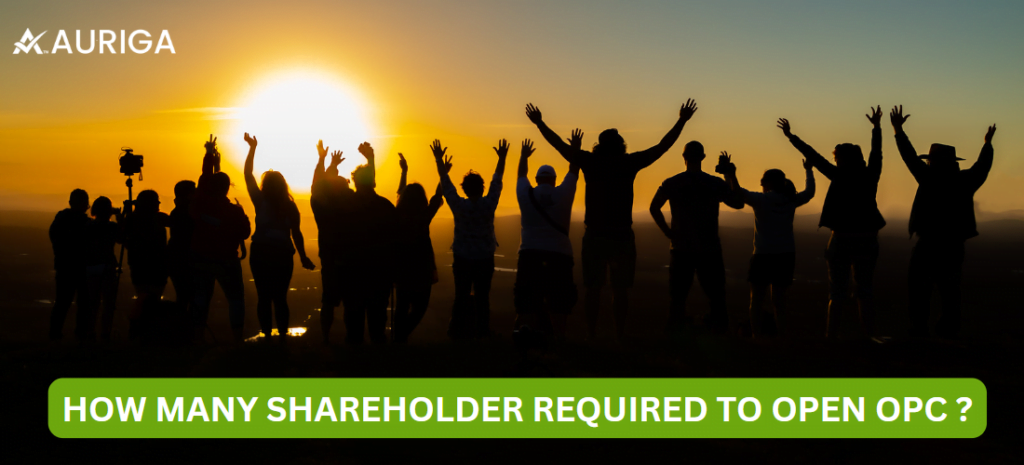HOW MANY SHAREHOLDERS REQUIRED TO OPEN OPC ?
Introduction
Toggle
HOW MANY SHAREHOLDERS REQUIRED TO OPEN OPC?
INTRODUCTION
An One Person Company (OPC) can only have one shareholder, who is also the promoter or the owner of the company. This means that the minimum and the maximum number of shareholders an OPC can have is just one.
There are a few reasons why an OPC can only have one shareholder. First, the Companies Act of 2013, which governs OPCs, states that an OPC is a “private company”. Private companies are limited liability companies that are not listed on a stock exchange. The Companies Act restricts the number of shareholders in a private company to a maximum of 200. However, an OPC is exempt from this requirement, as it can only have one shareholder.
Second, the concept of an OPC is based on the idea of a single-owner business. An OPC is designed to be a simple and easy-to-manage business structure for entrepreneurs who want to start a business on their own. Having multiple shareholders would complicate the management of the business and make it less efficient.
Finally, the government of India has introduced the OPC concept as a way to encourage entrepreneurship. By allowing businesses to be formed with only one shareholder, the government hopes to make it easier for people to start their own businesses.
If you are considering forming an OPC, it is important to understand the implications of having only one shareholder. You will need to be the sole decision-maker for the business, and you will be personally liable for any debts or liabilities that the business incurs. However, the OPC structure can also offer some advantages, such as simplicity, ease of management, and lower compliance costs.
BENEFITS OF SHAREHOLDERS.
There are many benefits to being a shareholder, including:
- Potential for capital gains: The value of a company’s shares can go up over time, which means that shareholders can make a profit by selling their shares for more than they paid for them.
- Potential for dividend income: Companies that are profitable often pay dividends to their shareholders, which are distributions of profits to shareholders. Dividends can provide a steady stream of income for shareholders.
- Voting rights: Shareholders have the right to vote on important corporate matters, such as the election of directors and the approval of major corporate transactions. This gives shareholders a say in how the company is run.
- Access to information: Shareholders have the right to access certain information about the company, such as its financial statements and its annual report. This information can be helpful for shareholders to make informed decisions about their investment.
- Liquidity: Shares are a liquid asset, which means that they can be easily bought and sold. This makes it easy for shareholders to cash out their investment if they need to.
CONCLISION OF SHAREHOLDERS.
Shareholders are the owners of a company. They have a stake in the company’s success, and they have the right to vote on important corporate matters. Shareholders can also benefit from the company’s profits through dividends or capital gains.
There are many benefits to being a shareholder, including:
- Potential for capital gains
- Potential for dividend income
- Voting rights
- Access to information
- Liquidity
- Shareholder discounts
- Shareholder perks
- Shareholder activism



